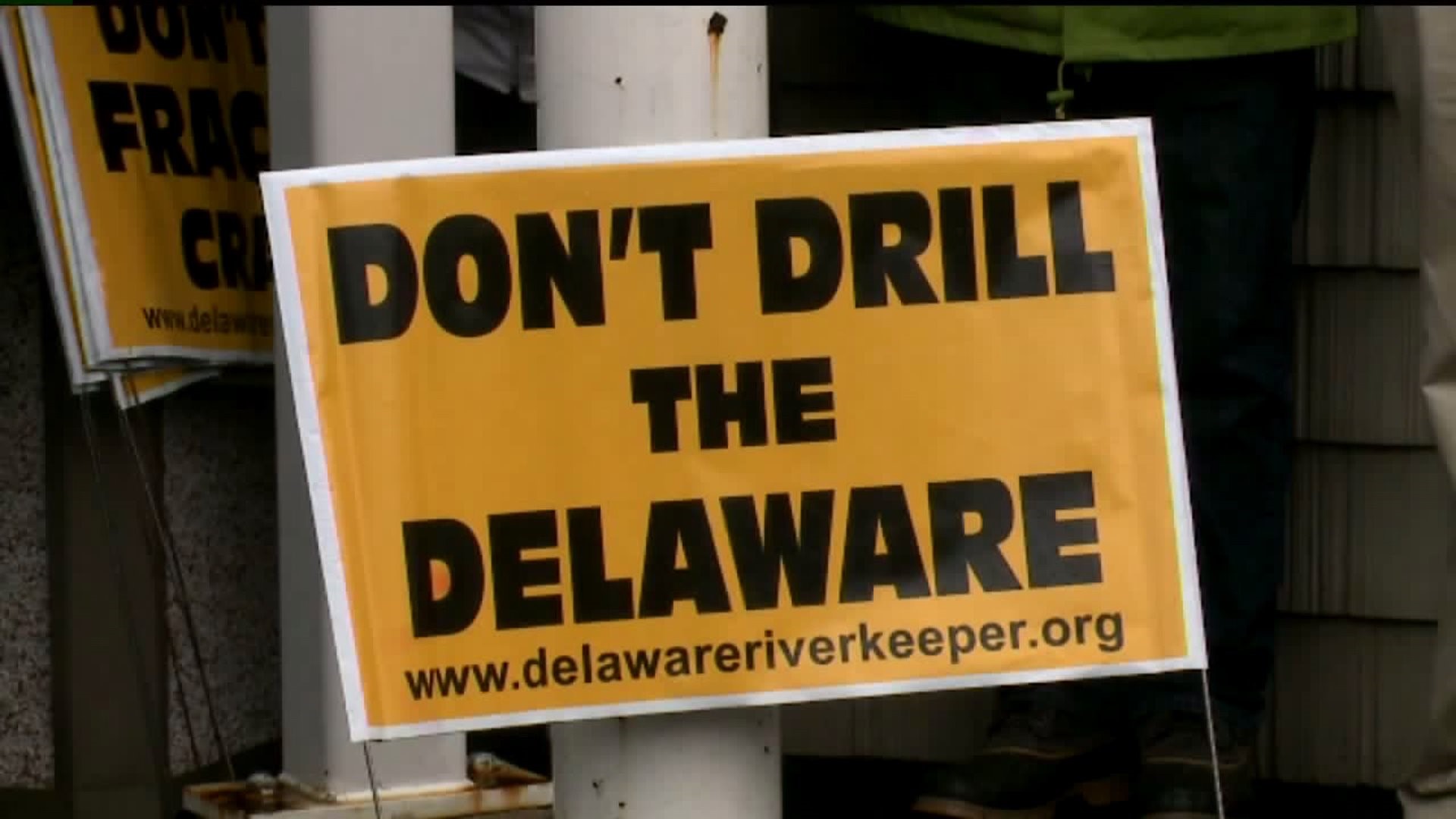CANAAN TOWNSHIP -- The controversial practice of fracking was front and center Tuesday at a public hearing in the Poconos.
Dozens of people for and against a permanent ban on fracking in Wayne and Pike Counties had their say.
This was the first public hearing for the Delaware River Basin Commission's proposed new rules on fracking.
While many want fracking permanently banned, others insist it goes against their property rights.
Dozens spoke for three minutes apiece during the Delaware River Basin Commission, or DRBC, public hearing near Waymart.
It's the first of five scheduled hearings over the coming weeks to gauge whether folks support a permanent ban on fracking along the Delaware River.
"The ban that's in effect is taking property rights without compensation. Not only is it un-American, it's a violation of the U.S. Constitution," said Damascus Township supervisor Kevin McGinnis.
For the past decade, plenty of landowners have argued for their right to drill for natural gas in Wayne and Pike Counties. But the DRBC hasn't allowed it and has now proposed a permanent ban.
The DRBC says fracking, the process of extracting natural gas from the Marcellus shale, poses risks to health and safety.
"Risk is something we should not base this on to shut it down as a permanent ban. Something's going on much bigger, an opportunity for our country, not just Wayne County," said Commissioner Brian Smith, (R) Wayne County.
Supporters of the ban made it clear they want the water protected, the same water that provides for recreation along the Delaware River and drinking water to millions.
"It's not a matter of county versus city. It's a matter of common sense. Our future is pure water," said Barbara Arrindell, Damascus Citizens for Sustainability.
Some farmers are for fracking, equating the proposed ban to an act of eminent domain while others believe fracking poses serious threats now and in the future.
"Property rights are not absolute. When an activity undertaken on a private property impacts other property, there are limitations to these rights and it's called acting for the common good," said Greg Swartz of Willow Wisp Farm.
Another hearing is being held Tuesday night with two more later this week in Philadelphia. The last time this process happened in 2011, the DRBC received 69,000 comments. The commission would have to go through them all before making a final decision.

